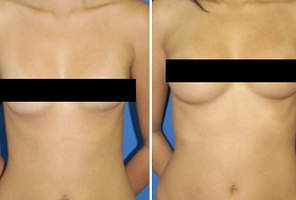What is Asclera™?
Asclera (polidocanol) Injection is an injectable sclerosing agent that has been used safely and effectively for over 40 years in Europe. Polidocanol, the active ingredient in Asclera, treats spider veins and small (1 to 3 mm) varicose veins by irritating the wall of the problem vein, encouraging it to close, which reroutes circulation to other, healthy veins. Asclera was FDA approved for use in the United States in 2010.
How does Asclera work?
Varicose veins occur when the tiny valves inside the veins stop working, interfering with the normal flow of blood. This can cause swelling, discoloration, and discomfort to the patient. When injected into the affected varicose vein or spider vein, Asclera irritates the vein’s interior lining, causing them to sclerose, or harden, and close. As a result, blood is prevented from flowing into these malfunctioning veins, eliminating the swelling, bulging, and discomfort often associated with varicose veins. Asclera is not indicated for use in large varicose veins, but veins between 1 and 3 mm in diameter can be treated with Asclera. Asclera functions in the same way to treat spider veins, which are smaller than varicose veins and typically are not associated with painful side effects, but can appear dark red, blue or purple.
What areas of the body does Asclera treat?
Asclera Injection is indicated for sclerotherapy of spider veins (less than 1 mm in diameter) and small varicose veins (1 to 3 mm in diameter) in the lower extremities.
Is Asclera effective?
Asclera (polidocanol) Injection has been used Europe to successfully treat spider and varicose veins in the legs for decades. In this time, over 5 million treatments have been performed with a very high success rate.
Who is a candidate for Asclera?
Most men and women with small varicose veins (reticular) or spider veins can be considered good candidates for injection sclerotherapy treatments. However, there are certain medications or health conditions which may preclude treatment, including specific cardiovascular or bleeding disorders. In addition, women who are pregnant should not undergo sclerosing treatments, including those with Asclera. Asclera should not be used in patients with known allergies to polidocanol (lauromacrogol 400) or any of the other ingredients of Asclera.
How is the procedure performed?
The procedure usually begins with application of a topical anesthetic to the treatment area to reduce possible discomfort during the procedure itself. The Asclera solution is injected carefully into the affected area and allowed to disperse through the veins. Most procedures take less than 30 minutes and are performed on an outpatient basis.
What is the recovery like?
Recovery time after treatment with Asclera is typically minimal, with most patients resuming normal activities immediately after their procedure. In some cases, compression garments may be prescribed to help speed the healing process when leg veins are treated.
What will the results be like?
Most patients see an improvement in appearance and symptoms soon after treatment. Results from treatment with Asclera can be seen in one to three treatment sessions. The number of treatments required for optimum results may vary between patients.
What are the risks?
All sclerosing agents are associated with certain risks, including scarring or other tissue damage, as well as infection. Your specialist can discuss any side effects or risks patients may encounter when undergoing treatment with Asclera, or any sclerosing product.
Is Asclera FDA approved?
Asclera was approved by the Food and Drug Administration in 2010, for use as a sclerosing agent.
Disclaimer: This information is intended only as an introduction to this procedure. This information should not be used to determine whether you will have the procedure performed nor does it guarantee results of your elective surgery. Further details regarding surgical standards and procedures should be discussed with your physician.
By OnlineSurgery.com Staff
Updated: March 31, 2010

